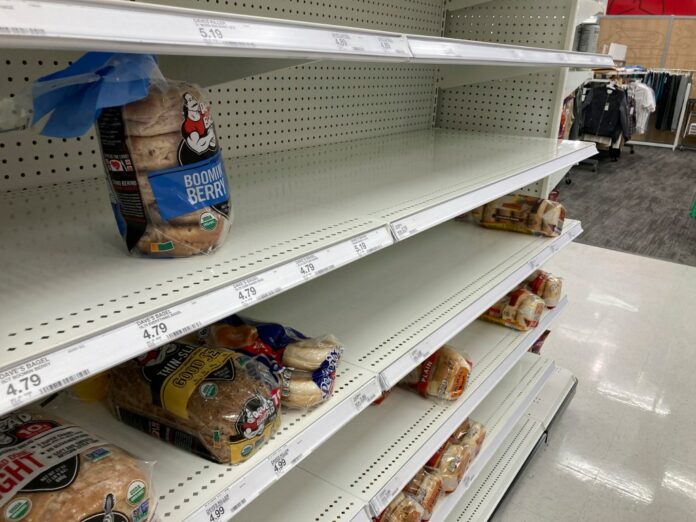Karl Marx famously said that history repeats itself first as tragedy, then as farce.
Vice President Kamala Harris is bringing that aphorism to life by putting price controls at the center of her economic agenda. Despite centuries of evidence that such controls invariably lead to shortages, rationing and general economic dysfunction, Harris thinks her price control scheme will work.
It won’t.
To fight “greedflation,” Harris proposes a “first-ever federal ban” on “excessive” grocery prices, national rent controls affecting 20 million apartments, and additional government price caps on prescription drugs.
It’s a return to the 1970s when double-digit inflation was dogging the economy, and politicians turned to price controls.
In 1971 President Richard Nixon announced a 90-day freeze on prices and wages. The outcome was as predictable then as it is comical now. In their book “The Commanding Heights,” Daniel Yergin and Joseph Stanislaw noted that farmers drowned their chickens, and ranchers withheld their cattle from markets. Gas lines stretched for miles. By the end of his presidency, Nixon was threatening more price controls to fix the mess he created.
Canadian Prime Minister Pierre Trudeau’s 1970s price control agenda met with similar results: supply constraints, hoarding and economic distortions. Frustrated workers — more than a million of them — went on strike in the largest walkout in that nation’s history.
President Jimmy Carter’s 1980 “windfall profits tax” on oil led to more shortages and consumer outrage.
Nixon, Trudeau and Carter could have avoided a lot of headaches and heartbreak if they had boned up on Roman history.
The first recorded example of price controls comes from the fourth century, during the reign of the Roman emperor Diocletian. Facing rampant inflation, Diocletian thought he could decree lower prices by issuing an edict.
What followed was an economic meltdown. Merchants refused to sell their goods at a loss, shortages spread, and the black market flourished. The Roman economy crumbled, and Diocletian was forced to abdicate. His folly became a textbook example of economic mismanagement.
Harris is proposing to open up Diocletian’s economic playbook again. She may claim that government price caps will make life easier for struggling families. However, such controls never work as intended. They don’t tackle the root causes of high prices, and they certainly don’t increase supply. In fact, they do the opposite.
Take groceries. By imposing price caps, Harris would be telling farmers and producers that their goods are not worth what the market says they are. The result? Farmers stop producing, grocery stores limit stock, and consumers face empty shelves. Black markets often emerge to meet unfulfilled demand, with prices higher than before.
In the pharmaceutical industry, the consequences could be even more dire. Research and development are expensive and time-consuming. Companies invest billions, hoping that a handful of potential blockbusters will provide a return on investment, cover the development costs of the drug candidates that fail, and fund future innovation.
Price controls would crush that incentive. Drug companies, facing lower profits, would cut back on research. New treatments would be delayed — if they ever came about at all.
This is not speculation. It’s already happening, thanks to the Inflation Reduction Act, which levies price controls on prescription drugs dispensed under Medicare. According to the Life Sciences Investment Tracker created by Incubate, a coalition of venture capital firms, drug companies have discontinued three dozen research programs and more than 20 drugs since the IRA became law.
From ancient Rome to the 1970s and now 2024, the truth is clear: price controls don’t work. They create shortages, stifle innovation and leave consumers worse off. Harris’s plan will end in farce — like all the other failed price control schemes before it.
Sally C. Pipes is president and CEO of the Pacific Research Institute/InsideSources



